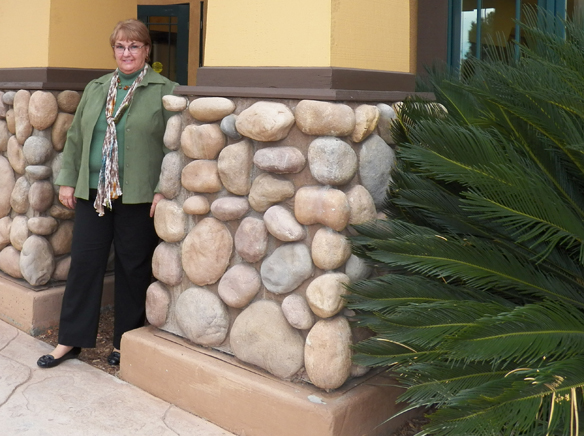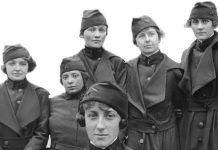Judith Shaplin is chief executive officer of Mountain Health Family Medicine. A little more than 29 years ago, she started work at the non-profit organization as a receptionist.
Judith Shaplin is chief executive officer of Mountain Health Family Medicine. A little more than 29 years ago, she started work at the non-profit organization as a receptionist.
When Shaplin started in her first job, Mountain Health had been around since 1975, initially focusing on provision of social services and assessments to seniors in financial need. In 1985, as a receptionist, the organization had two full-time employees and an annual budget under $100,000, serving between 500 and 600 low-income clients with health and social services. Today, for 2014, the group’s four health center locations employ 105 workers, with a budget of $6.5 million. Mountain Health now serves around 10,000 patients and clients each year, with 27,000 visits to the group’s centers and 20,000 meals delivered to needy elderly residents in Alpine and the Mountain Empire area.
Mountain Health currently has health centers in Campo, Alpine, Escondido and San Diego’s Sherman Heights neighborhood. The group’s coverage area spans 950 square miles, across sixteen communities, including Dulzura, Jacumba, Descanso, Japatul, Campo, Tecate, Lake Moreno, Alpine, Dehesa, Crest and Honey Springs.
Mountain Health each year gives health services of $500,000 to $750,000 in uncompensated medical care to those in extreme need. Others, who can afford to pay, are charged on a sliding scale based on income. The available services have expanded over four decades, to include disaster preparedness, a food pantry, back-to-school supplies and holiday parties with toys for poor children.
Shaplin has a deep, abiding commitment to rural health, and for good reason.
“This is not only a mission, it’s personal,” she said.
Rural culture is different, she said, and so are rural conditions. That requires understanding, sensitivity and downright finesse from medical and social services providers. She cites as an example urban physicians describing rural folk as “noncompliant” for failing to regularly change bandages to keep wounds clean, when in fact the recovering patients had no direct access to clean water—they would have had a long walk to carry water back from a distant well—and insufficient time and resources to garner assistance from others to follow their medical care instructions. “Doctors need to learn to ask the right questions,” she said.
Shaplin further described the “innate and inherent” difficulties of rural life and rural medicine. Such challenges include supporting personal well being by encouraging healthy habits in impoverished areas where exercise facilities are unavailable close by, where there is a lack of transportation, and where boredom and isolation drive up risks of alcohol and drug abuse, as well as teen pregnancies.
Judith Shaplin discusses her time with Mountain Health as assuming progressively more responsible positions. In addition to her title as CEO, she also is president of the corporation running the non-profit.
“I work differently now,” she said. “My role is different.”
She has become an advocate for rural health in the halls of political power in Sacramento and nationally, staying on top of the organization’s overall activities while delegating daily operations and tasks to her trusted associates. She ruefully describes her reluctance over public speaking.
“But San Diego is not known for being rural, even though there is a lot of rural area here, and somebody has to bring that visibility forward,” she said.
And the organization is continuing to advance. During the 2009-2010 year, the group set up a permanent food bank, both to support general backcountry health and to be ready for the next disaster as widespread as the 2007 fires. A year ago, the Center for Community Solutions assisted with adding domestic violence services to Mountain Health’s list of offerings. Last March saw groundbreaking for a new facility at the Campo site. The expanded health center, set to replace the existing 3,800 square footage and 4 exam rooms, will cover 23,500 square feet with 12 spaces for patient examinations. The capital campaign for the necessary construction cash is looking to raise over $2 million. But Shaplin says the building is meant to be sustainable for the long haul, “to stand the test of time.”
Mary Parra, Mountain Health’s Director of Fund Development, is actively engaged in the group’s ongoing fundraising efforts.
“Judith definitely leads by example,” Parra said. “Everybody here seems to have grown up in this organization.”
And in requesting money, Parra said Mountain Health is a charity, help is needed, and all donations go directly to service, and that “no donation is too small to help.”
Special events for December will include six Christmas parties for families. The gatherings will be sprinkled around the Mountain Health coverage area and will give 1,200 toys to poor children. Shaplin recalls the first Country Christmas party she staged in 1994, providing East County low-income residents the opportunity to “give back” by donating a can of food in exchange for a simple holiday dinner of spaghetti and candy canes.
Judith Shaplin has no immediate plans to retire from her three decades with Mountain Health. “Even when I’m relaxing and reading a magazine,” she said. ”I think about how I can use the information I’m learning to help what we do. I think the greatest satisfaction is to know you have made a difference in someone else’s life. That is the greatest gift.”
The Mountain Health center in Campo is located at 1388 Buckman Springs Road. The Alpine facility can be visited at 1620 Alpine Boulevard, Suite 119. More information on Mountain Health programs and services is available at www.mtnhealth.org.














